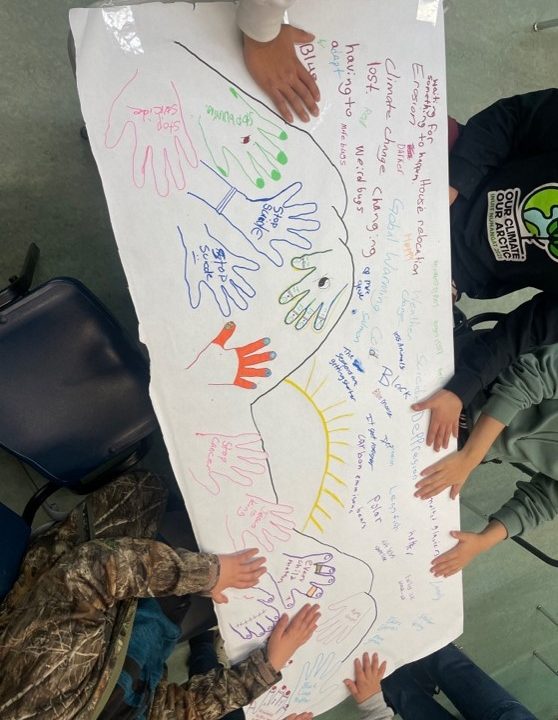Inuit Youth, Wellness & Environmental Stewardship: Carving out Climate Testimony
This project, funded by Polar Knowledge Canada (POLAR), Fonds de recherche du Québec (FRQ) and UK Research and Innovation (UKRI), is one of the 13 CINUK projects and is co-led by Karla Jessen Williamson from Saskatchewan University (Canada) and Jen Bagelman, Newcastle University (UK) and an Inuit Youth Advisory. Our team also benefits from its collaborations with academics at the University of Victoria (Canada), University of Aberdeen (UK), and Newcastle University (UK) and partnerships with over 10 organisations from across Canada, Inuit Nunangat, and the United Kingdom as well intergovernmental bodies, such as the IPCC. Finally, we are also honoured to work with renowned Inuk activist, Silla Watt-Cloutier, who continues to provide inspiration for and guidance on our project.
Our project is animated by the two-fold question: how do Inuit youth encounter climate change and its relation to mental-health and wellness more broadly conceived? Echoing the National Inuit Strategy on Research (NISR) we view the intersecting questions of wellness and the environment as a vital research priority.
Specifically, our project explores how changes to terrestrial, freshwater and coastal ecosystems (sea-ice and coastal processes, freshwater, snow, permafrost thaw, and changing marine ecosystems) shape Inuit youth’s well-being.
Our interdisciplinary team, with expertise across the physical and social sciences, takes a community-engaged and story-based approach to this research, and provides an Inuit-led structure and methodological pathway for community members to themselves determine how these systems are experienced.
In particular we work with an Inuit understanding of ‘storytelling’ (Inuktitut: Unikkausivut) which refers to verbal but also artistic and embodied expressions. Working alongside Inuit artists we explore how long-standing practices of storytelling can be used as a material and intergenerational method to visually convey climate realities and shape policy. Our Inuit-led team brings the necessary expertise to address these questions in a way that supports youth self-determination, centring youth as stewards of their own changing environments.
In June our team led a successful Inuit Youth Summit hosted on Coast Salish Territories wherein Inuit Youth Advisory exchanged knowledge with local Indigenous communities through land and water-based learning. The Inuit leaders hosted at PEPÁḴEṈ HÁUTW̱ in W̱SÁNEĆ territory were honoured to learn about and contribute to restoration work, as well as spend time at the T’Sou-ke Marine Office, where they gained insight into Indigenous coastal management. “I enjoyed my trip—it was one of the best educational experiences I’ve been on. It was so good to see familiar faces and meet new exciting people…I felt like we made a lot of connections,” says participant Eriel Lugt.
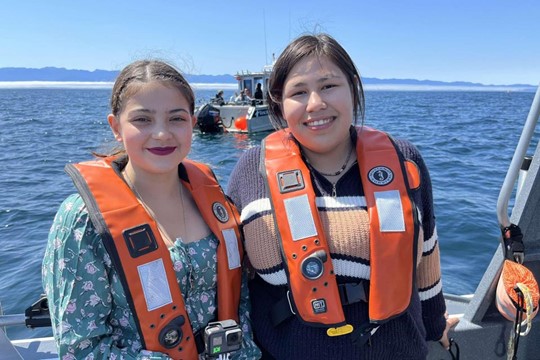
During the summit, Inuit leaders explored how storytelling through film, murals and curation can play a role in articulating climate change and supporting mental wellness. The Inuit leaders also screened their own film, Happening To Us, at the Legacy Art Gallery, where renowned Inuk activist Siila Watt-Cloutier actively encouraged their work.
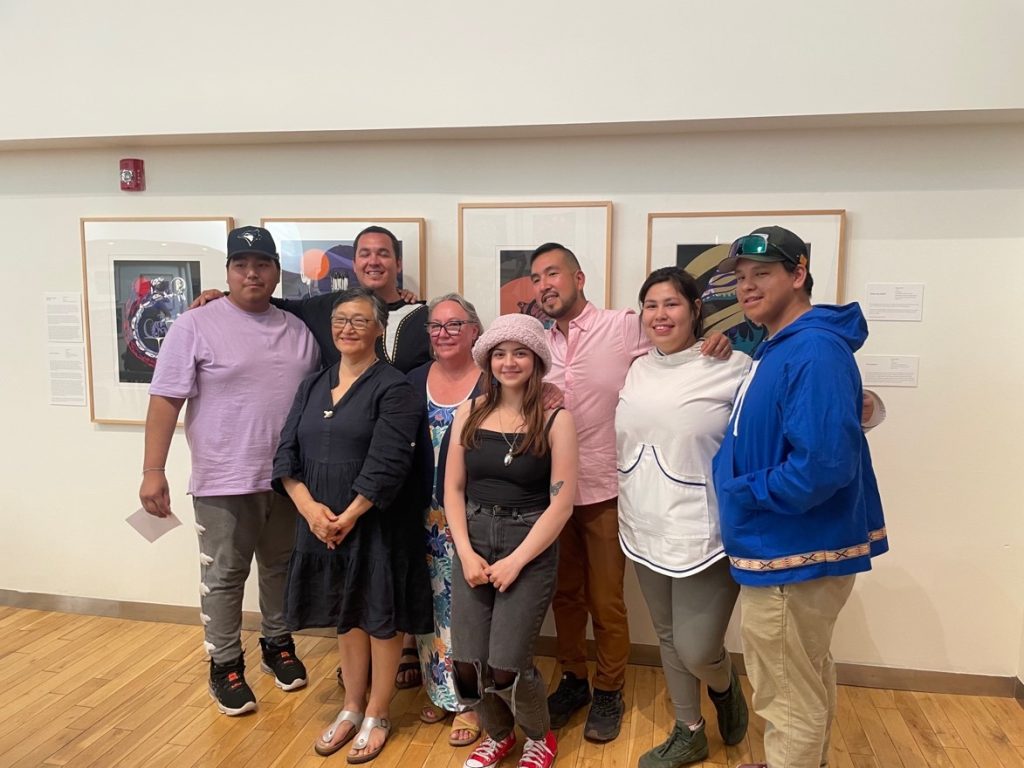
At the end of the summit, Inuit participants were presented with a United Nations-accredited certificate through CIFAL Victoria for their leadership in environmental stewardship.
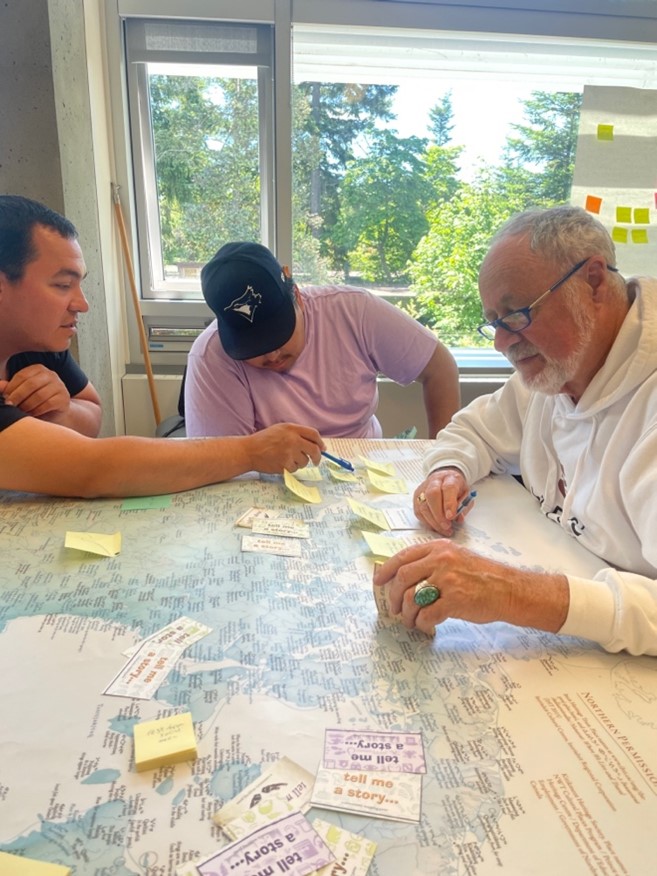
In October, some of our team had an opportunity to meet in Tuktoyaktuk where our Creative Lead, Brian Kowikchuk (born and raised in Tuktoyaktuk), led a series of community-engaged workshops with youth, co-designing a mural which explores the embodied connections between climate change and mental health.
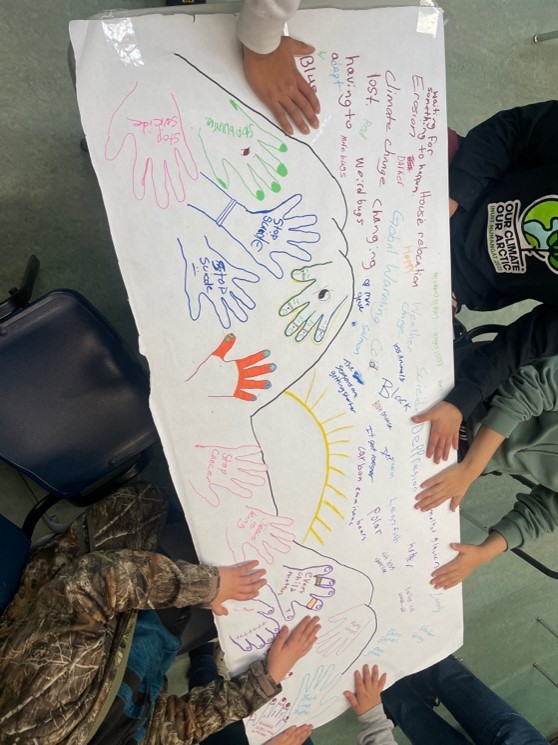
During this visit we were honoured to meet with the Elders Committee who provided vital guidance on our project and reflection on their experience of climate change in their Inuvialuit region. The Youth Advisory also edited their film ‘Healing Journey,’ which will be ready to share soon. The Advisory also designed our project’s Inuit-led Communications Strategy which guides how our work is shared and disseminated in a good way.
Best wishes from our team.
